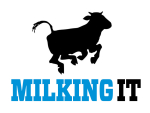Dairy conversion has taken on a whole new meaning around the small Horowhenua township of Otaki.
Two entrepreneurial woman have separately converted old, disused dairy sheds on their respective properties to Airbnbs, which give town folk a hands-on insight into country living.
Stacy Faith and her husband Andrew milk 360 cows once a day to supply Fonterra. They separately milk 20 more to supply A2 protein milk for the vending machine they have installed at their farm gate. It’s a farm that has long been in the Faith family.
The old dairy shed on their property dates back to the 1950s when Andrew’s father used to milk about 60 cows in what was a walk-through shed, where about five cows could be milked at a time using machines.
Faith says the idea of doing something with the old disused dairy shed on the farm came when she and her son went to Hamilton to watch the Phoenix football team play. On the way home they picked up a hitchhiker from the USA and he told them of his travels and the challenge of getting appropriate accommodation.
“I suddenly remembered that we had this old cow shed doing nothing at all and thought that this could be repurposed,” she told Rural News.
Faith says there was no specific plan for the conversion from old shed to new accommodation but with the help of builder the project came together and was completed in about nine months. She says, ideally, she’d have preferred two bedrooms, but realised that they would be small, so opted for a one bedroom that can accommodate four people.
From the outside, it still looks like a dairy shed and even inside it is dairy farm themed with bar stools made from old tractor seats, towel rails made from disused parts of a water trough. The toilet and shower are in the area where the milk vat used to stand and cow mats not cow pats that are very much in evidence.
From the kitchen and lounge you can see the cows pass by each morning on their way to be milked. Guests can also go to the milking shed and help with the morning for a small fee to cover the cost of providing gumboots and overalls.
Faith says the location of their accommodation suits travellers going to and coming off the Cook Strait Ferries as it just about an hour from Wellington. Before Covid a large number of the guests were from overseas.
“Now this has changed and about 80% are kiwis and about 20% from overseas. We used to get people from all over the world – we even had a couple from Latvia who were beef farmers,” she told Rural News.
Those staying at the shed get a real taste of country with milk, eggs and bacon all from the farm. Faith supplies their A2 milk, but also regular milk, recognising that not everyone can drink raw milk. All the guests have to do is cook their own breakfast.
Running this small B&B is just one of Stacy’s tasks. She rears the calves, is the backup milker looks after the vending machine and off-farm is a very busy swimming instructor. But she enjoys dealing with visitors who are mainly townies who ask the usual questions about the cows and farm life generally.
“I am not out to make millions, but I want people to experience farm life and put farmers in a positive light and change people’s attitudes,” she says.











